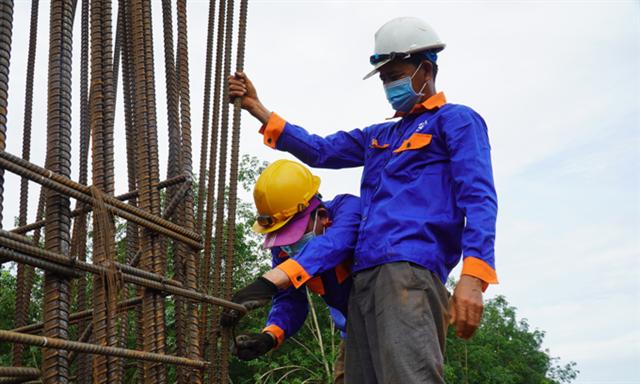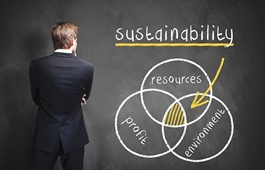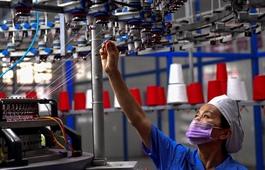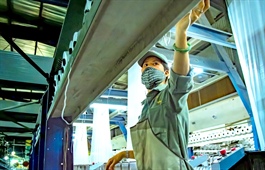Vietnam to lead Southeast Asia in growth: ADB
Vietnam to lead Southeast Asia in growth: ADB
The Vietnamese economy will be the fastest growing in Southeast Asia this year at 6.7 percent driven by a manufacturing recovery and boom in trade.
Workers arrange steel structure at a construction site in the southern province of Dong Nai. Photo by VnExpress/Phuoc Tuan.
|
The regional average will be 4.4 percent, a report released Wednesday by the Asian Development Bank (ADB) forecast.
Vietnam’s GDP growth is expected to top 7 percent next year, also the highest in the region, which would average 5.1 percent.
"Stagnant domestic consumption and weak external demand caused by the Covid-19 pandemic slowed down Vietnam’s economy last year, but the growth momentum remains strong this year and next, made possible by Vietnam’s success in controlling the spread of the virus," ADB country director for Vietnam, Andrew Jeffries, said.
Growth would be boosted by export-oriented manufacturing, increased investment and expanding trade, the report said.
The country’s purchasing managers’ index rose to 53.6 in March, the highest since January 2019. A rate of over 50 indicates expansion.
Construction is expected to pick up quickly as the government continues to accelerate major infrastructure work this year and low interest rates stimulate property development.
Faster-than-expected recovery in China and the U.S. would significantly expand Vietnam’s trade and growth prospects, the report said.
China, whose GDP is set to grow by 8.1 percent this year, in the first quarter surpassed the E.U. to become Vietnam’s second largest export market behind the U.S, it said.
Vietnam’s retail sales rose 5.1 percent in the first quarter, indicating a recovery in consumer confidence.
Increased domestic consumption, along with rising international oil prices, is expected to push inflation up to 3.8 percent this year and 4 percent in 2022, the report said.
Jeffries said: "But significant risks remain this year and next, including the emergence of new coronavirus variants and a delay in the government’s vaccination plan."
The report warned that the uneven global Covid vaccine rollout could delay Vietnam’s return to its strong pre-pandemic growth path, given its reliance on external trade.
Vietnam could maintain inclusive growth by softening the pandemic’s impacts on poverty and incomes, it added.
A study by the ADB found that the pandemic has reduced Vietnamese people’s incomes by 9.8 percent on average.
The bank urged the government to adopt a sustainable long-term strategy to help poor and vulnerable people diversify their livelihoods through measures such as vocational training and improved access to microfinance for starting businesses.




























